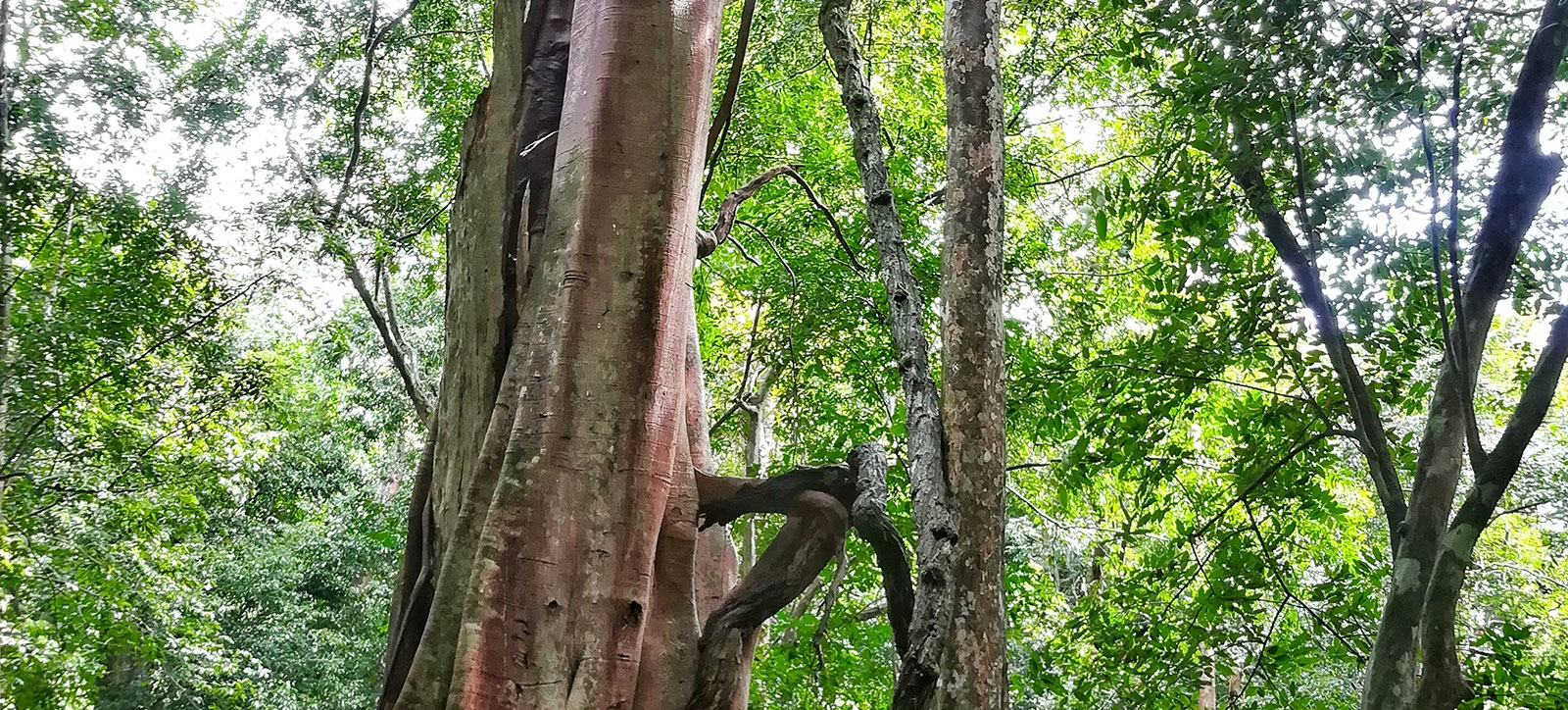
Ecosystem: Like Neste Oil ensuring that the rainforest is not destroyed to grow its oil, other firms need to make sure the systems they work in are sustainable
Companies need to collaborate if they are to help in building a socially and environmentally sustainable future.
This is the message of Hugh Wilson, Professor of Marketing, who will be heading up the Leading Corporate Sustainability Executive Education course at Warwick Business School’s London base next year.
“Sustainability is not something you can do on your own as an add-on to your current business,” he said.
“You have to collaborate with other firms to change the system you are in. You can’t single-handedly make the whole supply chain of your key markets circular, or abolish modern slavery, or change sector norms to look after nature.”
Speaking at a recent seminar on sustainability held at WBS London at The Shard, Professor Wilson pointed to the example of Neste Oil, which is a member of the Roundtable on Sustainable Palm Oil.
He said: “In order to become a world leader in renewable, plant-based oil, they’ve had to get deeply involved in making sure their supply chains are sustainable, and ensuring, among other things, that rainforest is not destroyed to grow its oil.
“They’ve had to set up new supply chains using cooking oil and the like, and be deeply involved in transforming the way that ships transporting their products power themselves.
“All that systemic work helps their competitors as well as them, and helps Nestle Oil to position itself to succeed in a sustainable future.”
The advice for companies at large is that sustainability is not just about managing their inputs and outputs responsibly. It is about asking “what the future of your sector would look like if it was sustainable and deciding on the position you could occupy in that system”.
It is about systems building and working with partners to transform the systems of which the firm is a part.
Embedding sustainability into strategy
Looking forward to the Leading Corporate Sustainability programme next April, Professor Wilson said: “Whole sectors, from energy and transport to homes and food, are facing fundamental transformation.
“This course focuses on how to participate in shaping that transformation, and how to position yourselves to succeed within that transformed future.”
The Executive Education open programme, which runs for three days from April 22 next year, has been designed to help businesses – as well as non-profits and the public sector – to integrate sustainability into their strategy and align the whole organisation behind that strategy.
Aimed not only at those in dedicated roles but also at all senior managers, it will look at how sustainability needs to be fused into every aspect of the business.
Participants will learn how to implement sustainability initiatives in their organisation. They will also gain an understanding of how to evaluate those initiatives and how to address the financial challenges during transitions to more sustainable outcomes.
And looking beyond the organisation, there will be a focus on creating positive social impact for customers and suppliers.
“It is so important for organisations to navigate environmental challenges, including climate change impacts and the net-zero transition, in a way that works for people and the economy as well as the environment” said Professor Wilson, who is the Course Director.
“After all, business has already been crucial in solving another crisis - the ozone layer,” he said, referring to the industry collaboration since 2004 to design chemicals called HFCs out of everyday products such as aerosols and refrigerators.
“So we can do it again.”
Professor Wilson will be joined on the Leading Corporate Sustainability programme by fellow WBS academics Mike Bradshaw, David Elmes, Haley Beer and Katharina Dittrich.
There will also be input from Rosina Watson, Associate Professor of Sustainability at Cranfield School of Management and Visiting Professor at WBS. She worked with Professor Wilson on a business sustainability game which picked up a Financial Times Responsible Business award earlier this year.
WBS was recently ranked among the UK’s top three providers of Executive Education for open courses and 19th globally, with all these programmes taught at The Shard.
Hugh Wilson is Professor of Marketing, and teaches Creating Sustainable Organisations on the Executive MBA, Executive MBA (London), the Global Online MBA and the Global Online MBA (London). He also teaches Succeeding in a Sustainable Future on the MSc Marketing and Strategy degree.
Discover more about the Leading Corporate Sustainability three-day course at Warwick Business School.




 X
X Facebook
Facebook LinkedIn
LinkedIn YouTube
YouTube Instagram
Instagram Tiktok
Tiktok